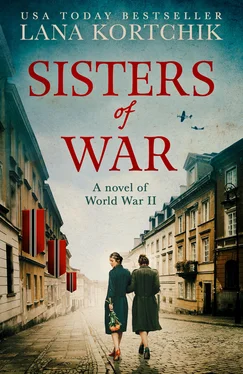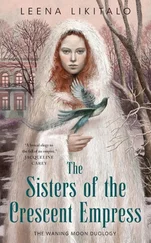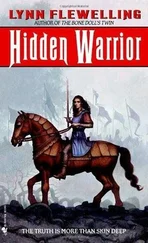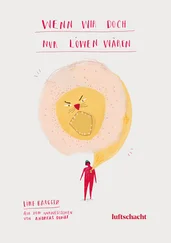LANA KORTCHIK grew up in two opposite corners of the Soviet Union – a snow-white Siberian town and the golden-domed Ukrainian capital. At the age of sixteen, she moved to Australia with her mother. Lana and her family live on the Central Coast of New South Wales, where it never snows and is always summer-warm, even in winter. She loves books, martial arts, the ocean and Napoleonic history. Her short stories have appeared in many magazines and anthologies. She was the winner of the Historical Novel Society Autumn 2012 Short Fiction competition and the runner-up of the 2013 Defenestrationism Short Story Contest. Sisters of War is her first novel.
PRAISE FOR SISTERS OF WAR
‘A powerful and hard-hitting novel, it tackles the themes of loyalty and compassion, and emphasizes the hard choices that need to be made in wartime.’
Deborah Swift, author of The Lady’s Slipper
‘Its powerfully descriptive language pulls you into the bleakness of war, the longing for peace, and the exhilaration of profound, unconditional love.’
Marie Silk, author of Davenport House
‘I didn’t want this story to end. It’s one of those books you hold close to your heart and don’t want to let go … left me speechless and wanting more.’
Sharon Laker, author of The Railway Mice of Countesthorpe
‘I cried, smiled, gasped and laughed while reading this book. It will stay with me long after I’ve finished it.’
J.L. Leslie, author of Tame Me
Sisters of War
LANA KORTCHIK

HQ
An imprint of HarperCollins Publishers Ltd.
1 London Bridge Street
London SE1 9GF
First published in Great Britain as The Story of Us by HQ in 2018
Copyright © Lana Kortchik 2018
Lana Kortchik asserts the moral right to be identified as the author of this work.
A catalogue record for this book is available from the British Library.
This novel is entirely a work of fiction. The names, characters and incidents portrayed in it are the work of the author’s imagination. Any resemblance to actual persons, living or dead, events or localities is entirely coincidental.
All rights reserved under International and Pan-American Copyright Conventions. By payment of the required fees, you have been granted the non-exclusive, non-transferable right to access and read the text of this e-book on-screen. No part of this text may be reproduced, transmitted, downloaded, decompiled, reverse engineered, or stored in or introduced into any information storage and retrieval system, in any form or by any means, whether electronic or mechanical, now known or hereinafter invented, without the express written permission of HarperCollins.
E-book Edition © December 2018 ISBN: 9780008314835
Version: 2019-17-12
Table of Contents
Cover
About the Author
Praise
Title Page
Copyright
Dedication
Part I – In Iron Shackles
Chapter 1 – Black Cloud Descending
Chapter 2 – The Barbaric Hordes
Chapter 3 – The Soldier
Chapter 4 – The Bleak Despair
Chapter 5 – A City Ablaze
Chapter 6 – The River of Death
Chapter 7 – The New Beginnings
Chapter 8 – The Snow and the Illusions
Chapter 9 – The Icy Fortress
Chapter 10 – At the Crossroads
Chapter 11 – The Impossible Choices
Chapter 12 – A Beacon of Happiness
Chapter 13 – Freedom’s Elusive Glare
Part II - The Everlasting Hope
Chapter 14 – Rays of Sunshine
Chapter 15 – The Utmost Chaos
Chapter 16 – Tentative Promises
Chapter 17 – A World Aflutter
Chapter 18 – Against All Odds
Chapter 19 – Waiting for a Miracle
Chapter 20 – The Battle of Kiev
Epilogue
Acknowledgements
Dear Reader
Thank You for Reading!
Keep Reading…
About the Publisher
For my mum.
Thank you for always believing in me.
Part I – In Iron Shackles
Chapter 1 – Black Cloud Descending
September 1941
It was a warm September afternoon and the streets of Kiev were crowded. Just like always, a stream of pedestrians engulfed the cobbled Kreshchatyk, effortlessly flowing in and out of the famous Besarabsky Market. But something felt different. No one smiled, no one called out greetings or paused for a leisurely conversation in the shade of chestnut trees that lined the renowned street. On every grim face, in every mute mouth, in the way they moved – a touch faster than usual – were anxiety and unease, as if nothing made sense to the Kievans anymore, not the bombings, nor the fires, nor living in constant fear.
Most stores were padlocked shut and abandoned, and only one remained open on the corner of Taras Shevchenko Boulevard and Vladimirovskaya Street. A queue gradually swelled with people, until they spilled over into the road, blocking the way of the oncoming cars that screeched to a stop, horns blaring and harsh words emanating from their windows. Soon, as is often the case in a line for groceries, a heated argument broke out near the entrance to the store.
‘I’ve been standing here since four this morning, I’m not letting you ahead!’ screamed a red-faced man with dull eyes. He looked angry enough to strike the intruder, a small woman holding an infant.
‘I have a baby. She hasn’t eaten since yesterday,’ the woman pleaded, lifting her little girl for everyone in the queue to see.
‘So what? You are not the only one with a mouth to feed,’ said the angry man.
The woman moved towards the end of the line, while her baby screamed at the top of her lungs.
‘Do we have to listen to this?’ were the parting words from the man.
‘Come over here, my dear,’ said an old woman dressed in a winter coat with a kerchief over her head, despite the mild weather. ‘You can go in front of me if you like.’
‘Why are you letting her ahead? We’ve been waiting for hours,’ complained a matronly lady behind the old woman.
‘And another two minutes won’t make a difference,’ replied the old woman in an I-won’t-hear-any-argument voice. And apart from a few belligerent looks, she didn’t get any.
As the mother thanked the old woman with tears in her eyes, two young girls and a boy approached the store from the direction of the Natural Sciences Museum. They didn’t try to jump the queue but stood quietly at the back, unsmiling and serious, as if they were attending a lecture at a prestigious university.
‘What are we queuing for?’ asked Natasha Smirnova, a tall, dark-haired waif of a girl.
‘Sausage,’ said the old woman.
‘Flour,’ said the woman with the baby.
‘Tomatoes,’ said the matronly lady. But no one seemed to know for a fact, and the line didn’t move, nor did anyone leave the store with bags of sausages, flour or tomatoes.
‘That’s good. Tomatoes will keep,’ said Natasha.
‘They won’t keep,’ replied her companion, a petite redhead with a ponytail and a sulky expression on her face. ‘We’ll have to eat them in a week.’
‘If we pickle them, we can have them all winter.’
‘Winter? This war won’t last till winter,’ said the young mother confidently.
‘You mean, we won’t last till winter,’ murmured the old woman. ‘Not if the Nazis come here.’
Читать дальше





![О Генри - Сестры золотого кольца [Sisters of the Golden Circle]](/books/415415/o-genri-sestry-zolotogo-kolca-sisters-of-the-gol-thumb.webp)







